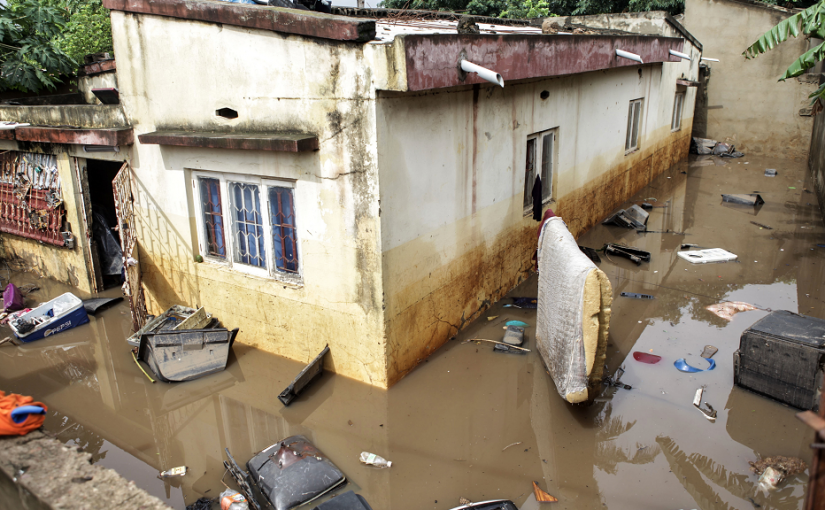Mozambique marks a decade free of landmines - HALO Trust
Mozambique: Residents demand new sanitation policy to combat annual Maputo floods

FILE - A flooded house in Maxaquene neighbourhood, Maputo city, on February 9 2023, following rains which had been falling since the 7th of February.[File hoto: Lusia Nhantumbo/Lusa]
People heard by Lusa in Maputo have advocated a new sanitation management strategy, given the cyclical flooding that affects the capital during rainy periods.
“The lack of a true drainage system and the exploitation of inappropriate areas are among the main reasons for these floods,” said Manasse Chauque, resident of the Ferroviário neighbourhood, which was among the areas most affected by floods in the current rainy season in Maputo.
At issue are the cyclical floods that affect several districts of the Mozambican capital, including the city centre, during the rainy season, which runs from October to March in Mozambique.
For Chauque, the definition of a new sanitation management strategy, which includes the constant rehabilitation of the system installed during the colonial period in the city centre, is the condition for solving the problem.
Uncontrolled construction in expanding neighbourhoods and the building of housing in the mangrove area (Costa do Sol) makes the situation much more critical, Manasse Chauque stressed.
“When there is rainfall, all the roads are flooded. In the case of our neighbourhoods, the situation is much worse: it is almost impossible to drive or walk,” said the 31-year-old athlete.
For Aurélio Nhantumbo, another resident of the capital, the most worrying thing is the fact that this is a problem that has not been solved for years.
“What worries me is the fact that this is a problem that we register every year. We already know that when it rains, 25 September Avenue [one of the main avenues in the centre of the capital] will be flooded. However, we never come up with a solution”, the young student declared.
“Every year we plan and ask for donations, but we never really come up with a solution to the problem. Year after year, the scenario is the same”, added Aurélio Nhantumbo.
Eugénio Mondlane, 31, also considered that poor sanitation management is among the main causes of the problem, which creates “chaos” for the residents of the Mozambican capital.
“When it rains, apart from the puddles that exist in almost all areas, our houses are also affected. We know that the walls are going to fall down,” said Eugénio Mondlane, noting that most of the roads are dilapidated, which in times of rain makes the situation much more “chaotic”.
In Mozambique, the occurrence of floods is recurrent at this time of year, but even so, rainfall has been higher than expected: in the week of 6 to 12 February alone it rained almost three times the average for the month of February, according to the National Meteorology Institute (Inam).
The southern region of Mozambique, namely Maputo and its surroundings, have been hit by heavy rain and flooding in this period, causing 11 deaths, causing losses to 43,500 people and leaving several public infrastructures damaged.
Between October and April, Mozambique is cyclically hit by floods, a phenomenon justified by its geographical location, subject to the passage of storms and, at the same time, downstream of most hydrographic basins of southern Africa.












Leave a Reply
Be the First to Comment!
You must be logged in to post a comment.
You must be logged in to post a comment.